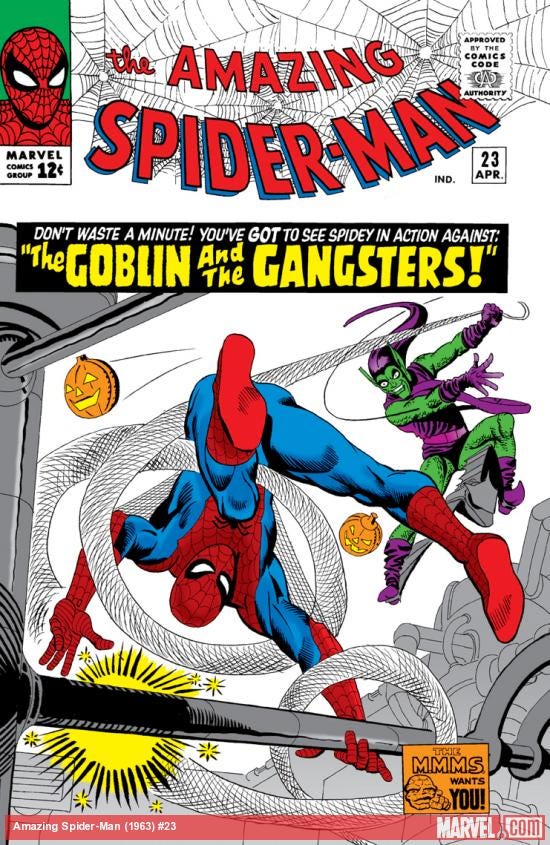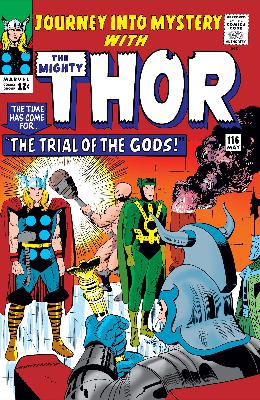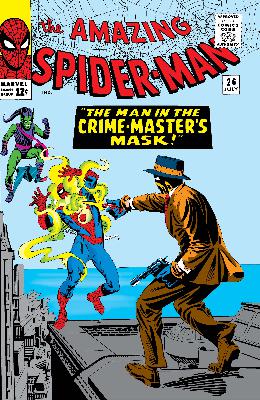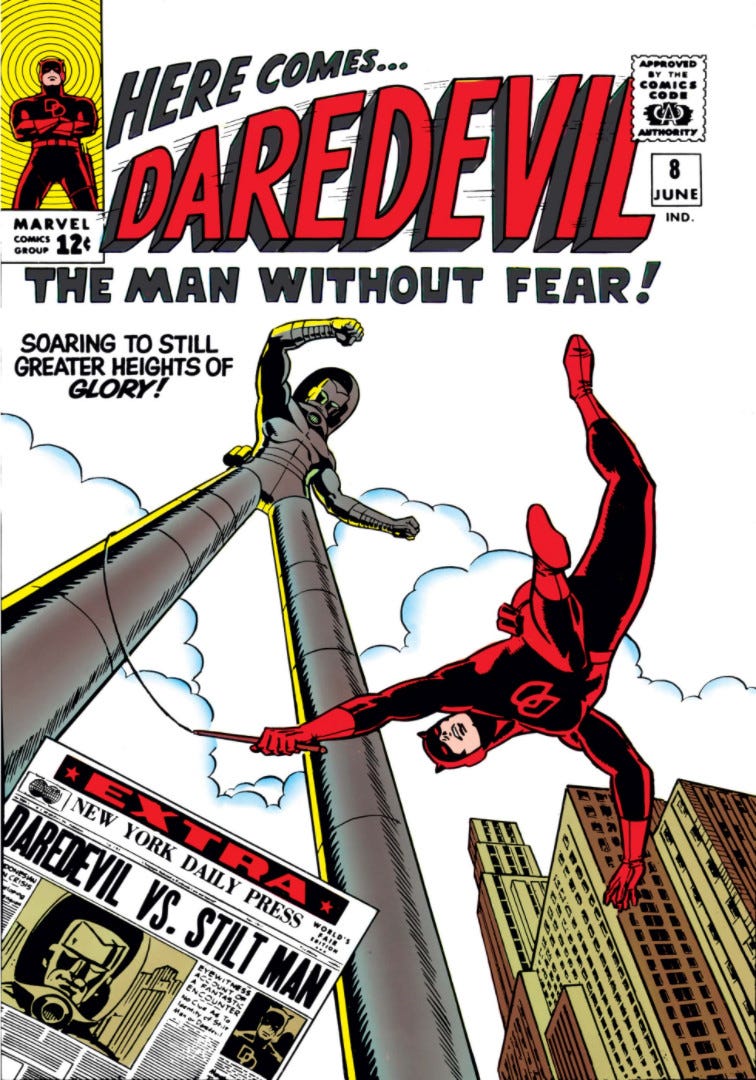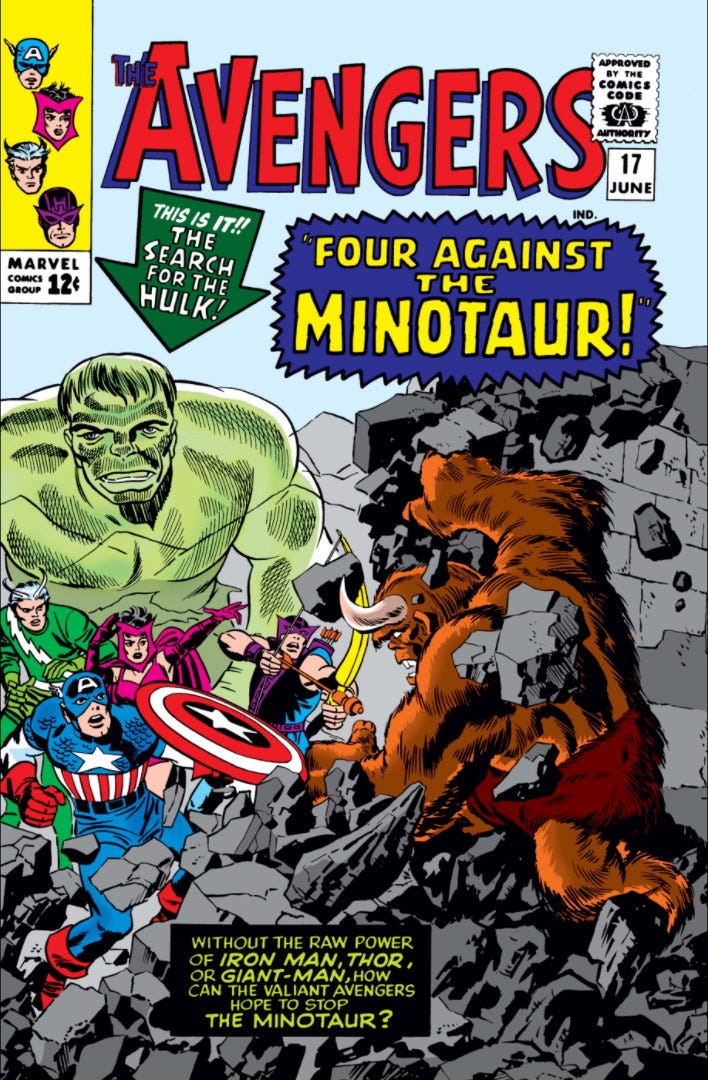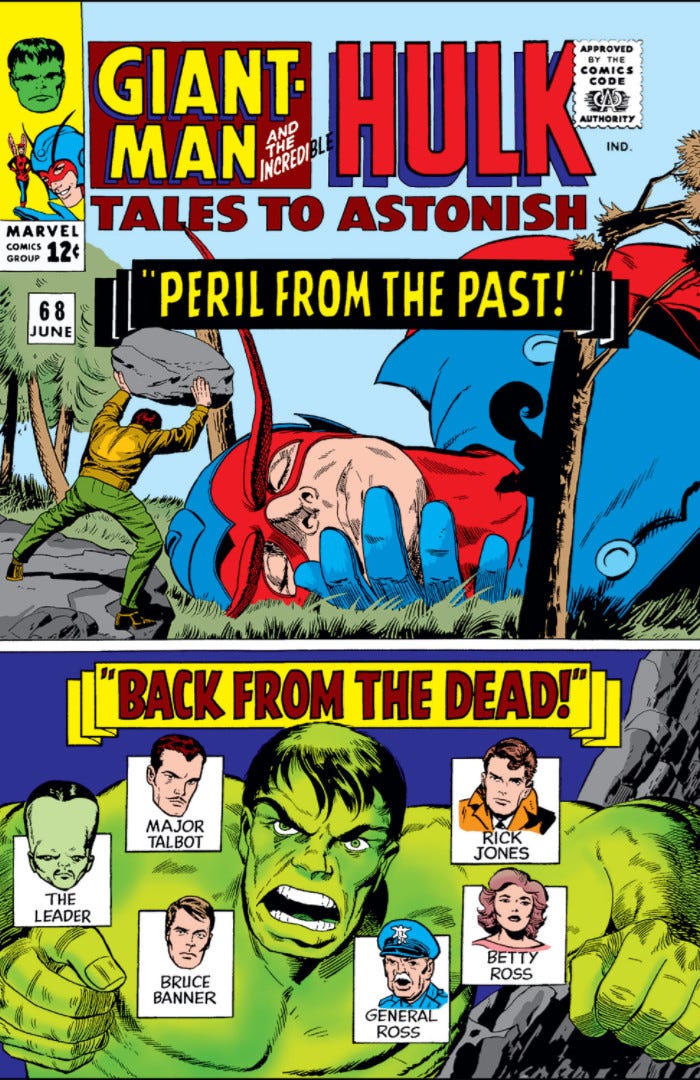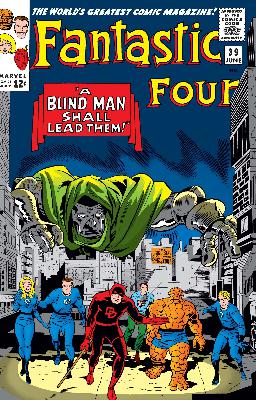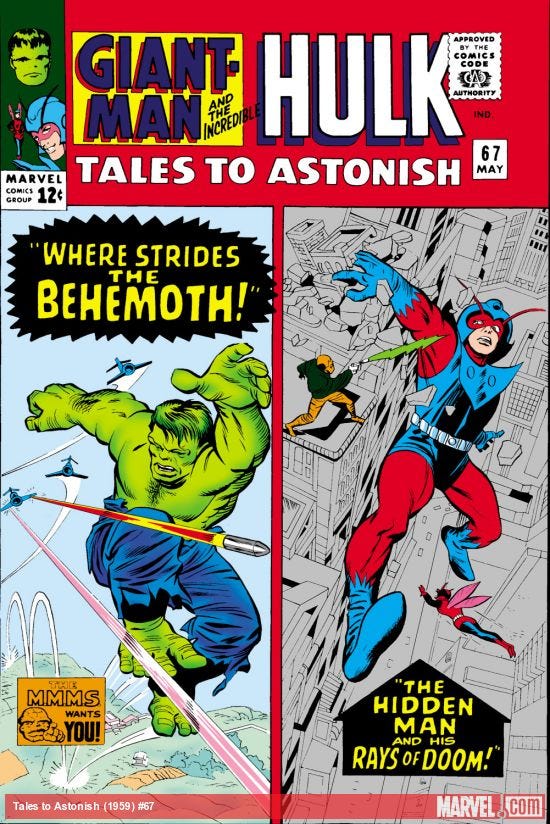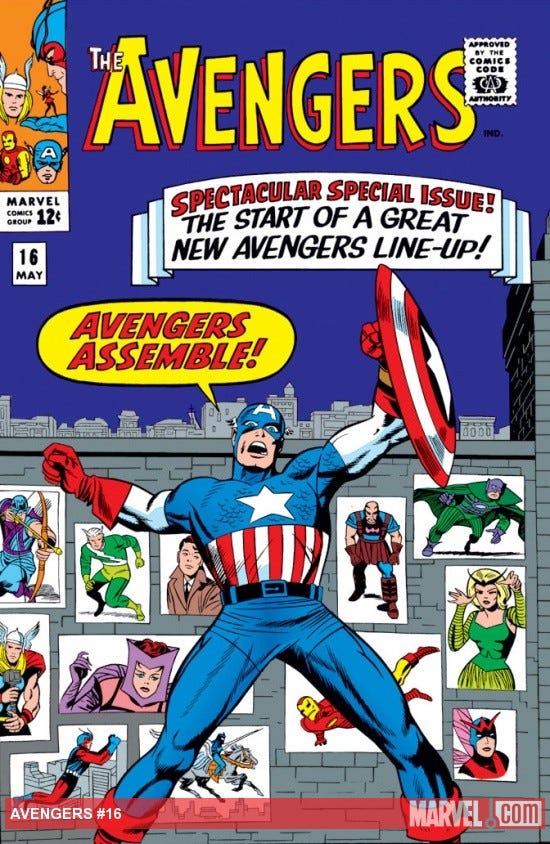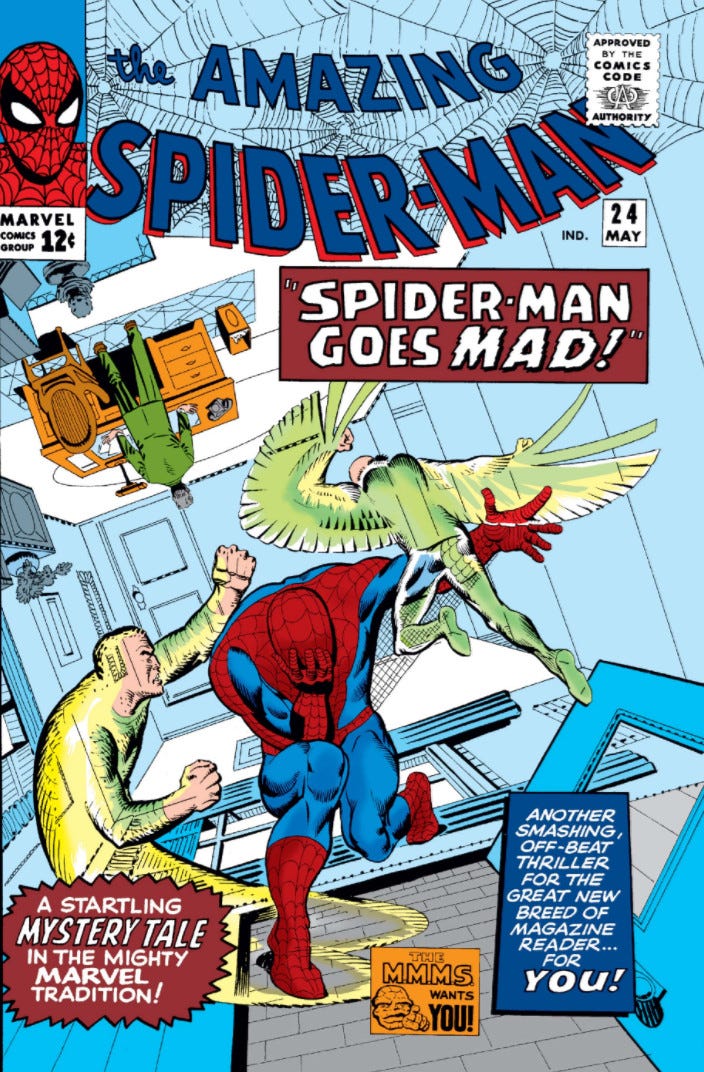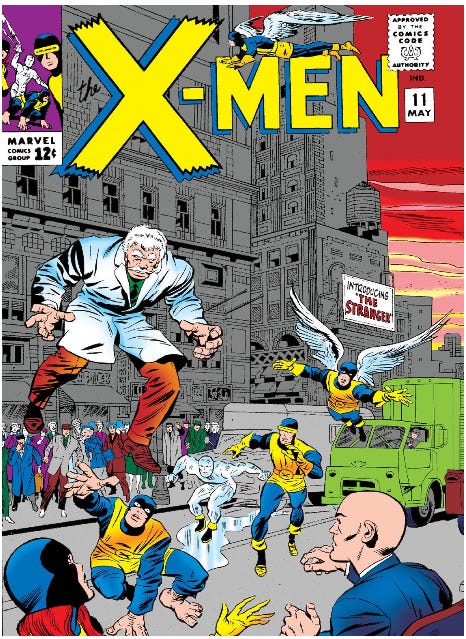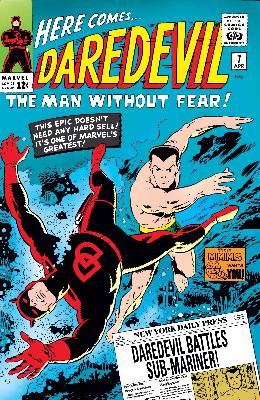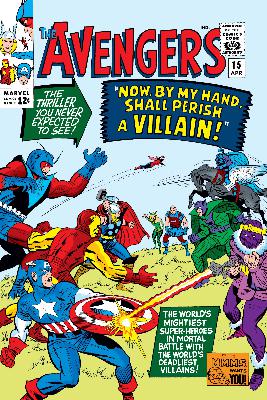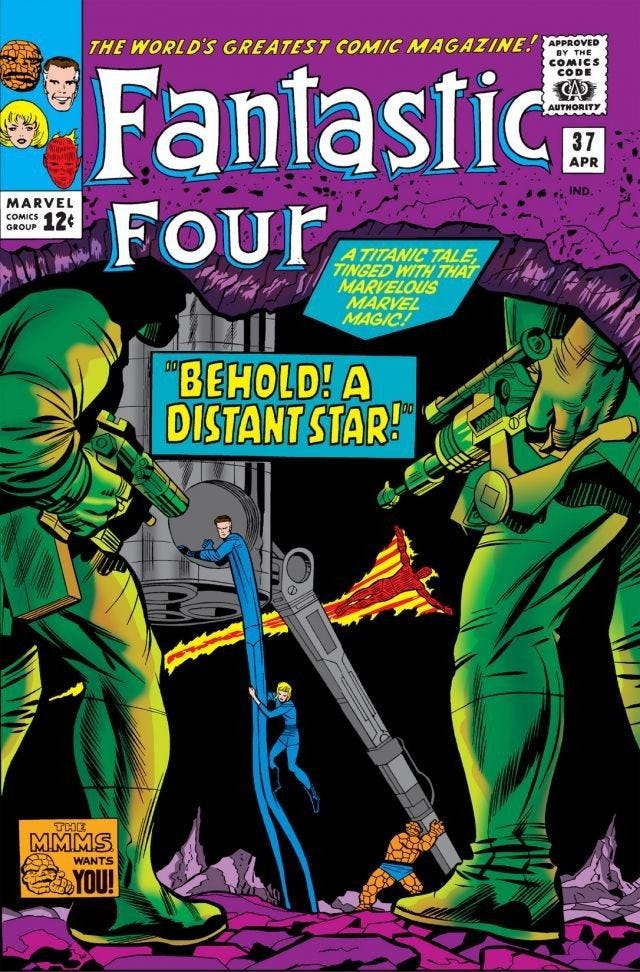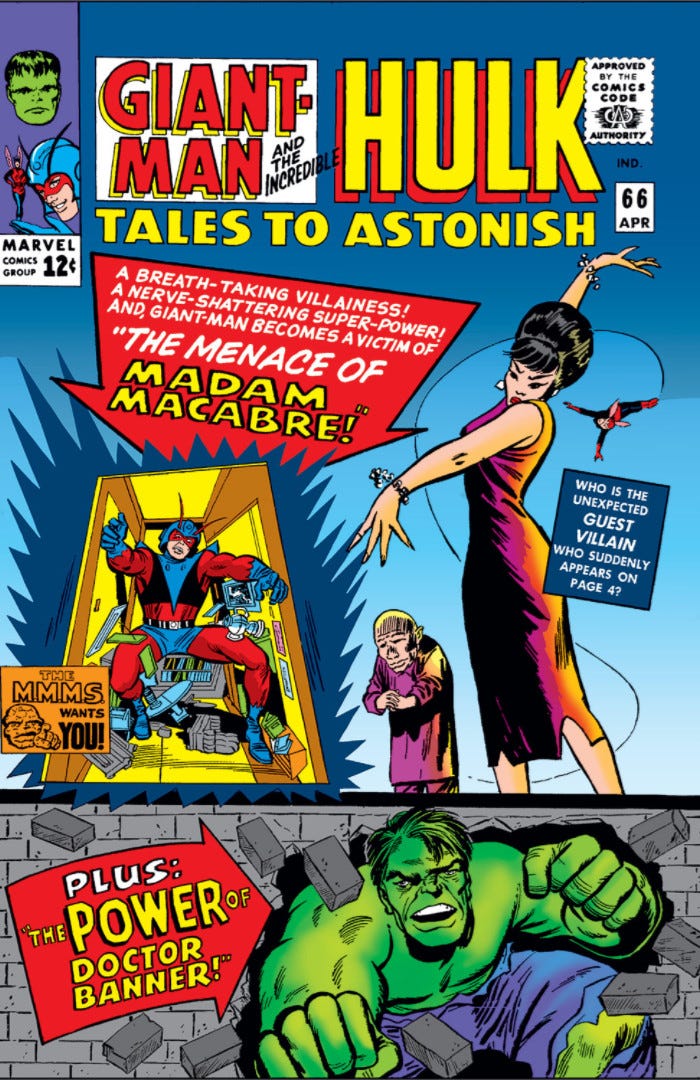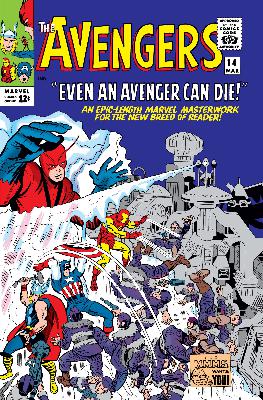E191: Come on, ugly doesn't mean evil! (Amazing Spider-Man #23) -- April 1965
Description
In this episode:
Mike and Ed discuss the increased police presence in the city and how that is affecting both real and perceived crime. Is this because police have less to do as a result of the superheroes helping out? Is the presence of superheroes itself causing criminals to give up lives of crime, and maybe even become heroes? More to the point, is that what happened with the Green Goblin - he was inspired to become a hero? If so, why has he not changed his appearance? Does he want to be scary, or is what he truly looks? And how the heck does he balance on that glider - does he have abs of steel?
Behind the Issue:
This is the third appearance of the Green Goblin. Clearly, he does not become a hero. Steve Ditko and Stan Lee decided to keep the Goblin’s identity secret, but behind the scenes they were debating who he should be. Lee wanted him to be someone from Peter’s life, but Ditko wanted him to be a stranger. The disagreement meant that the Goblin’s identity remained a secret from the readers until Ditko left the title (the Goblin’s identity was revealed in the first issue after Ditko was replaced). Oh, the drama!
In this issue:
The Green Goblin tries to take over the New York City underworld, and while they are not convinced, he is definitely scaring them. Meanwhile, Peter Parker notices that former reporter and criminal Frederick Foswell is back at the Bugle. Apparently, the Bugle’s publisher J. Jonah Jameson believes in redemption, or at least the value in giving people a second chance. Peter is not convinced that this is a redemption story, though, and he tails Foswell, whom he notices speaking with a thug. Foswell turns over information to Jameson that the thug had on a crime boss, who in turn provides this information to the police. The Goblin is overjoyed with these pieces falling into place - he has set this whole thing up to help him with his hostile takeover of the world of crime. Peter then changes into his Spider-Man outfit and tracks the Goblin, who tricks him into conflict with a mob boss and his lieutenants. Spider-Man basically does the Goblin’s dirty work, taking out the gang and leaving them for the police. Realizing he has been played for the fool, Spider-Man finds and attacks the Goblin, who gets away. It’s not all roses for the Goblin, though, who is disappointed to find out that Spider-Man did too good a job when he took down the mob boss and his entire gang, with the result that the Goblin had no gang to take over.
Assumed before the next episode:
The Green Goblin is going to need to rethink his whole gang takeover strategy.
This episode takes place:
After Spider-Man took down an entire gang.
Full transcript:
Edward: Feeling safer these days? Mike?
Michael: No. ? No, I wouldn't say so. ,
Edward: I feel like, like there's increased police presence on the streets. They're putting some crime bosses away. Is New York not a safer place than it was even a few weeks ago?
Michael: Oh, well I guess that's standard than maybe, but I definitely have noticed a greater police presence in the last little while, certainly since the, a. Population of superpowered individuals on the scene. Do I feel safer before buildings could be captured and kidnapped and brought into space? I wouldn't say so in, you know, multiple invasions in New York City, but
Edward: so, so, so, so clearly. Life is less safe now than it was in 1960 before.
Michael: Right
Edward: buildings. Were getting torn away, but I'm just talking about recently, like recently it feels like the superheroes are out on the streets. There's a bunch of them now. It feels like they're covering the ground around the monsters and the super villains, and that's freeing up the police to go and take out the normal villains.
Michael: Well, I think so. I have noticed that there's more police for sure. I, don't know what element of that is performative and what element is that the costume vigilantes that we speak about every week have been in addition to attacking gods and monsters and aliens have also been attacking street level crime as well. There is no doubt that Ant-Man and now Giant-Man and Spider-Man and all the insect related heroes, I suppose are trying to deal with some street level justice, which probably is freeing up some time for the police to focus on other things, other elements of society that require policing. That's my guess. Or, is his performatively they're just trying to show that maybe they shouldn't be ignored. Yes, there's people flying through the air, but we're the police, darn it. And we're in the. Keeping you safe, .
Edward: Yeah. That, that, that is something, right? If that performativeness makes us feel safer, it could also make the criminals feel less safe and drive the criminals back into the holes they came from.
Michael: Maybe. It could, but I still wonder if it's just performative. It's almost just trying to get attention, if you know what I mean. Like it's like everyone's talking about Iron Man, but don't they know we're the real heroes, , and it's like
Edward: the, the every we have, we need more, less kids. Dressing up as Iron Man and more kids dressing up as everyday police officers.
Michael: That's right.
Edward: Let's have more realistic dreams. Kids. . .
Michael: Yeah. Unless you are a super science genius, can invent your own costume, you should probably apply to the police academy
Edward: don't expect to be superhero. Just be a regular, everyday hero.
Michael: Yeah. And that's good enough. But no, but seriously, I guess I haven't made my mind up. I'd be curious about the statistics. let's just call it regular crime and whether police are being freed up to deal with more of the regular crime that's why we're noticing it. And if they aren't, if there's no real change in how much, in the impact of like regular crime and how it's being policed, then I think it is performative. And it just seems like they're just trying to get some of the attention. I have a mixed mind, not when it comes to the police in general, it's just they're not there to tell me what to do and not to do they're there to investigate crimes and well, and,
Edward: and they've, and they, so they've had some successes lately, right? So, lucky Lobos basically says whole criminal enterprise got all swooped up. The Frederick Farwell, a former crime boss himself outta prison now working for the daily bugle, put together a. Basically did investigative reporting figured out where all of Lucky Lobo's financial records were kept and, blew it out to the police. And they shut down, not just the head of the family, but basically shut down the entire operation and that's gotta reduce crime. ?
Michael: Well, yeah, it would, I think, I'm not saying that there haven't been some recent successes, it's just that I'd like to see that's more anecdotal. Or at least there's a recency effect here. I'd like to see what has been the impact? I guess I'd express it this way. What has been the impact of having superheroes and super villains out in, say, New York City on the ability of police to police regular crime? If there has been any impact, so is it that the superpowered individuals are taking care of that and a little bit of regular crimes such there's more effort being put into a policing regular crime or if it's just no impact at all. And it's just for show, I don't know.
Edward: It's interesting when I was in business school, one of the studies that we looked at was about crime in cities. And clearly like when crime goes down, real estate prices go up. And so we, well, we cared about in business school was money Mike and how forget about safety, but how safety affects money. But the point was, When you could, one way to drive down crime and drive up real estate prices was to basically do us like a spike of policing. Because if crime was at a relatively low level, that meant the police that you had on duty could identify any new crime that happens and shut it down. But if crime is at a really high level, the same number of police can't handle all that crime, and crime goes unenforced, which then encourages more crime, cause you can get away with it. Your chances are getting cock down. And so you need to drive it down to a low level and then keeping. At that low level is a lot easier than getting it there to begin with. And so I wonder if this, like the spike in policing that we've seen, the performative nature of it, the fact that we have these superheroes doing stuff. Has that driven crime down to a level now that it's gonna be easier to maintain at a low level. And it's driving even super villains to become superheroes like so the Green Goblin, for example, now he's gone from being a villain to like apparently being a hero. And maybe that's because crime doesn't pay anymore. let's switch to the other side.
Michael: Before we get to the Green Goblin, I understand the point you're making, maybe, I mean, again, but I think as a business person, you would like to see the data as would I, but I'm a little confused. Why are you saying the Green Goblin is, is acting like a hero?
Edward: So Green Goblin was involved in this whole shutdown of The lucky Lobo criminal gang, he helped take them on and he was seen battling them and taking out the crime bosses. He's working for the good guys.
Michael: Yeah, Goblin's always worked for the good guys.
Edward: Are you saying? Saying maybe if he's

